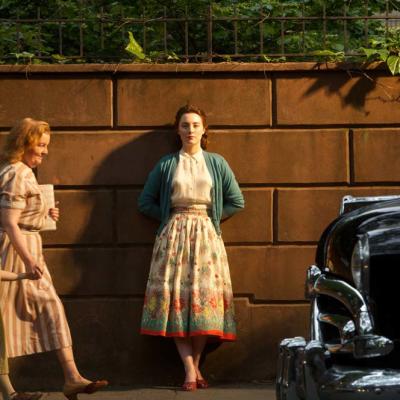On Chesil Beach takes the cliché-ridden romance genre to some refreshing tangents. Whereas the obstacles of many cinematic couples ranged from tragedy to long distance, here you have something a bit more personal – one’s own insecurities. This is a story that’s all the more personal, and relatable, because it tries to touch upon the tenants of what makes us imperfect as human beings.
Based on the bestselling novel which many still think is a novella, Ian McEwan’s story doesn’t completely translate on to the big screen even if it’s only 166 pages. This is another case of the book’s author being the film’s screenwriter and it serves to be an incredibly mixed experience as the film goes on. Whether it stays true to the original material is another matter altogether. Coincidentally, Saoirse Ronan, the talented young actress from Lady Bird who plays the leading lady Florence, acted in another of Ian McEwan’s adaptations (Atonement) to which she played the child version of Briony, a very, very important character to the film’s plot. In fact, you can see the eerie similarities between these two stories and that’s not necessarily a bad thing, but more a tribute to how strong the resolve is in McEwan’s storytelling formula.
The year is 1962. You see a couple of young newlyweds: Florence (Saorise Ronan) and Edward (Billy Howle) ready for their honeymoon in a romantic, more-than-ideal cabin by the water. As they soon get to the good’ol coitus with no previous sexual experience, the film’s narratives flashes back and forth between this uncertain day and the tale of how these two met and blossomed.
You certainly get a good sense of mystery from this romance making the plot much more immersive than your usual standard romantic affairs. Both of these characters have inner worlds of chaos that you can see in their eyes providing an engaging enigma to unravel as the film goes on. They both seem to share parental figures that are textbook determinants of emotional instability and neuroticism. With an upbringing like that, the personalities of these young lovers are a bit rough around the edges which of course drives their yearn to escape and find solace in one another. It’s not revolutionary stuff in how love comes along but the writing’s execution is a lot more polished and coherent than most.
How this tale concludes is sure to ruffle some feathers though. Whilst the screenplay is written by the author of the source material, it’s a different interpretation to the book’s ending that is sure to piss off die-hard fans. For the cinematic medium though, it has some gut-wrenching emotional punches. There is something to be said about how much the film establishes the romance between these two young lovebirds. There doesn’t seem to be enough of it before they’re lounging at each other and proposing their unrequited love for each other over and over again. Again, the second half leading up to the ending takes a sudden dynamic that makes the film feel like it’s not confident enough to speak aloud.
The score features a two-pronged attack of classical and rock music to represent the different passions of Florence and Edward respectively. The classical stuff works but the rock doesn’t. Nothing wrong with the genre or a sense of zeitgeist to the 1960s, but it feels more tacky and trying too hard to appeal to the character’s persona rather than the emotions of the overall story.
On Chesil Beach does have vigour. It has tension and craftsmanship in its tale but with that comes ambitious technicality, faint direction and a screenplay that is sure to alienate the fans of the book. An intriguing yet pretentious take on the innocent of young love. Go read the book again. It’s only 166 pages.
On Chesil Beach releases in Australian cinemas nationally on AUGUST 9, through Transmission Films




